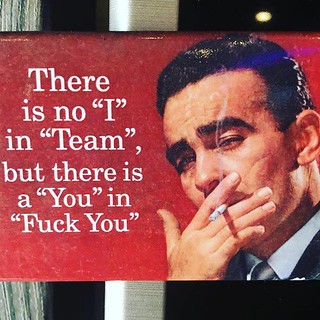Theseus
¥
The top ten most annoying phrases of English corporate jargon:
1) touch base = to meet /talk about an issue.
2) blue-sky thinking/thinking outside the box = creative thinking.
3) we're on a journey = highlighting the fact that a company team or project has not yet reached its mission or objective.
4) game changer = a product/process/idea that represents a significant shift.
5) no-brainer = claiming that something is an irrefutably good idea.
6) thought shower = a meeting to share ideas, without considering practical limitations.
7) run it up the flagpole = present an idea and see if it generates a reaction.
8) if you don't like it, get off the bus = implying that a colleague should leave a company if unhappy.
9) it's not rocket science = it doesn't require a genius to understand it.
10) there's no 'I' in team = success is achieved not by any single individual, but through the group coordinating their efforts together.
This is the list of management-speak horrors. Any Greek parallels? I think this thread going to be a 'work in progress(!)':curse::devil::down:
1) touch base = to meet /talk about an issue.
2) blue-sky thinking/thinking outside the box = creative thinking.
3) we're on a journey = highlighting the fact that a company team or project has not yet reached its mission or objective.
4) game changer = a product/process/idea that represents a significant shift.
5) no-brainer = claiming that something is an irrefutably good idea.
6) thought shower = a meeting to share ideas, without considering practical limitations.
7) run it up the flagpole = present an idea and see if it generates a reaction.
8) if you don't like it, get off the bus = implying that a colleague should leave a company if unhappy.
9) it's not rocket science = it doesn't require a genius to understand it.
10) there's no 'I' in team = success is achieved not by any single individual, but through the group coordinating their efforts together.
This is the list of management-speak horrors. Any Greek parallels? I think this thread going to be a 'work in progress(!)':curse::devil::down:


